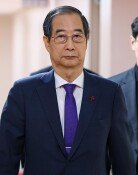The ‘push-and-pull’ between Tokyo and Pyongyang over summit
The ‘push-and-pull’ between Tokyo and Pyongyang over summit
Posted March. 29, 2024 07:39,
Updated March. 29, 2024 07:39
The meeting between leaders is a delicate affair. Even when schedules and agendas are set, they are rarely disclosed. A seasoned diplomatic official, being a protocol expert, said, "Scheduling should be near perfect for it to be announced. The only exception would be natural disasters.”
There's a relationship nowadays that defies this common sense; the one between North Korea and Japan. Kim Yo Jong, the sister of Kim Jong Un, mentioned the possibility of a Japan-North Korea summit after her speech last month, saying, "The two countries can open a new future together." Then, on Monday, Japanese Prime Minister Fumio Kishida suddenly made a public proposal to meet with Kim Jong Un. However, the very next day, Kim Yo Jong changed her stance, saying, "A North Korea-Japan summit is not a concern for us," reversing her position within a day.
Watching Kim Yo Jong's 'real-time reporting’ on her one-man show, Japan should feel displeased and uncomfortable as the relations between the two leaders have not even matured. However, the response is somewhat peculiar. Prime Minister Kishida hinted last month that he was "actively engaging in various activities" regarding the summit. After Kim Yo Jong's surprise speech on Monday, he affirmed the importance of a summit by stating, "Resolving all issues with North Korea requires a summit."
Even for allies, preparing for a summit is difficult and cautious. Why are Japan and North Korea engaging in this public 'push and pull' lately when there's not much mutual fondness?
The reason Japan is holding onto the summit seems relatively clear. One of the few cards Prime Minister Kishida, whose term ends in September, has for a reversal in his approval ratings is negotiating with the North Korean leader. A government insider said, "The possibility is slim, but if North Korea shows sincerity regarding the abduction issue, it could be a jackpot for Kishida, who is mired in the 20% approval ratings swamp."
North Korea's mention of a summit has multifaceted reasons. Firstly, it seemingly wants to actively publicize its behind-the-scenes negotiations to unsettle Japan. Additionally, there seems to be a calculation that the North can disrupt the trilateral relationship by unsettling Japan, which has relatively easier access for the North among the three allies – South Korea, the U.S., and Japan. A diplomatic official said, "It seems North Korea intends to expose Japan as if Kishida were begging for dialogue, aiming to enhance propaganda effects while trying to escape international diplomatic isolation." Other analyses suggest Pyongyang is sounding out the possibility of utilizing Tokyo as a conduit to contact Washington before the presidential election in November.
There's a widespread belief that the immediate possibility of a North Korea-Japan summit is slim. The fundamental disagreement remains over the issue of Japanese abductees. While North Korea repeatedly insists on not mentioning the abduction issue as a precondition for the summit, Japan remains firm in its stance that it won't participate in the summit unless this agenda is raised. Kim Yo Jong's sudden dismissal of the possibility of a summit on Tuesday likely stems from this significant gap between the two sides.
From our government's perspective, we should not sit on our hands as if the Japan-North Korea summit were mere gossip from the neighbors. Nor should we look at distant mountains just because there are no visible movements right now. When the urgent needs of both sides align, a sudden breakthrough can occur anytime when coordinating a summit meeting.







